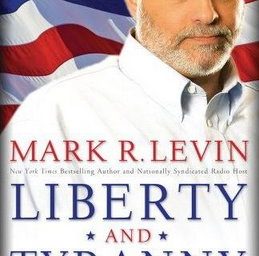Cal-Mart
Kevin Drum reports on Wal-Mart’s troubles in Southern California,
By a huge margin they voted down an initiative that would have allowed Wal-Mart to open a “colossal retail and grocery center” without an environmental review or public hearings. Hey, why would anyone object to that?
Actually, outside of California, just about everyone. Who ever heard of an environmental review to open a grocery store? Are they selling plutonium now? Or public hearings, for that matter? What business is it of the public whether a property owner in a commercial district opens a grocery store?






“What business is it of the public whether a property owner in a commercial district opens a grocery store?”
I assume you’re joking? Every city in the country has a planning commission, and that’s what they’re for: to give the public some oversight over things that affect the community. You aren’t suggesting that opening a gigantic store has no effect on anyone except the property owner, are you?
Actually, what is being ignored is that WalMart TRIED to go through the regular process and was denied by the labor-heavy City Council, only then did they decide to take it to the voters…
Steven Malanga has an opinion piece on the fight against Wal-Mart in today’s Wall Street Journal. (Don’t know if it’s in the on-line version.) He pegs most of the hostility to the Unions, working with various left-wing groups. Good overview of the battles round the country.
The day’s coming when commiefornia will be chopped right off the map of the good old USA…
Kevin,
I don’t know the process that goes on in most major cities, but my understanding is that there are boards who zone areas and regulate the issuance of licenses. But if an area is zoned for that type of commerce, the idea that which grocery stores get to operate should be subject to mass opinion is just strange to me.
The citizens of Inglewood – which no one would mistake for a pretty area – will now have that empty lot with litter instead of a strip mall generating around $10MM in taxes a year (total tax to Inglewood from current store base is less than $100,000 a year). Funny how the black mayor and other social groups were for the measure since the plan from the new Walmart taxes was to raise a $100MM bond for new services.
With local unemployment in the double digits and median income around $20K, I am sure that the voters may rue their decision when Walmart or some other store opens a few miles away somewhere else, giving the tax revenue to someone else.
Maybe a strip club or liquor store will go there since that what usually goes in poor areas, buy as long as they hire union, it will be okay.
I admit that I am myself confused as to why one should need public hearings to open a grocery store on commercial-zoned land. But that’s because I’m a vile libertarian/Whig type, no doubt.
Grocery and retail stores are, after all, not generally pollution sources of any significance.
And if we’re going to allow any impact to require a public hearing, well, I wish Mr. Drum the best of luck the next time he wishes to repaint his house. His neighbors, after all, might veto the color he wants.
Actually, Kevin may already have to do that. Most of us in Northern Virginia do indeed have to get permission for pretty much anything we do outside our homes because we’re forced into joining homeowners’ associations. Indeed, mine is so restrictive that I have to repaint in EXACTLY the shade that the house came in, down to the paint code number.
Grocery and retail stores can be sources of congestion, and Wal-Mart has a nasty habit of opening new stores and then abandoning the old ones to lie fallow (refusing to allow other merchants to *buy* the building, only lease) and become an eyesore.
I’ve always had the opinion that cities should require Wal-Mart to either sell the old store or destroy it within X number of years after a new store is built to serve the same community.
Beyond that, California is as California does.
Also, FYI, a town in upstate south carolina recently fought to prevent the opening of a Wal-Mart because of the fear of what it would do to local businesses and the location factor. It’s still in the pipeline.
Hey, it’s their city/state. Let them pay more for groceries. Does anyone know about the net impact on jobs when Walmart moves in?
This attitude makes it hard to listen to whining about gas prices when they won’t approve refineries or pipelines.
Sigivald: James is right. I can paint my house any color I like as long as it’s beige. So I’m already corrupted.
I actually wasn’t especially defending Inglewood’s wisdom in keeping Wal-Mart out, but I was defending their right to do it. For one thing, they have legitimate concerns about such things as traffic and other externalities. Second, for any project of any size there’s really no such thing as just looking at the zoning and then building away. Large projects always request lots of variances from zoning and building regulations, and there’s a considerable amount of negotiation that goes on. It’s not quite as simple as it seems.
That said, I have little doubt that the real reason for keeping Wal-Mart out was heavily labor driven. It’s a different argument whether that’s legitimate or not.
FWIW, it’s my understanding that the Wal-Mart in question was a “Super Wal-Mart,” the kind of place that sells groceries in addition to other goods. We’re talking about a large, large place in a city that’s already developed. It would definitely affect traffic patterns and the like.
OTOH, that’s where the Forum is located, and they cope with the traffic from that. (This used to be where all the big rock concerts were, in the dark days before the Staples Center was built.)
I sympathize with you East Coasters on the paint issue, but wonder what you’re supposed to do if a paint manufacturer goes out of business?–unless they gave you a Pantone color or something like that to use as a guide. When my friend the science professor visits Los Angeles we walk around and look at houses and he tells me people don’t use paint very creatively in Maryland–that they either stick to very boring shades or go wild and give their houses that cutesy gingerbread look that’s worse.
Just to reiterate some of what Kevin Drum has said:
In CA, ANYTHING that requires planning approval is subject to an environmental review and public comments. (Call me crazy, but I think that this is a good thing.)
I think that part of the problem is that you are confusing environmental review with things like Environmental Impact Reports, and being subject to public hearings with actual long drawn out public hearings.
Environmental reviews do stuff like determine how much traffic a project will generate and the extent of the road improvements needed throughout the city as a result. If certain toxic substances are used, significant portions of natural habitat will be destroyed, or (as Kevin Drum points out) significant variances to normal codes and regulations are requested, an Environmental Impact Report is also required.
Every planning application the size of a grocery store requires mailings for public comment, if enough people write back saying they hate the idea, or if an EIR is required, it goes to public hearing.
Something as large and controversial as a Walmart Supercenter would likely require both an EIR and a public hearing, but a new Albertson’s probably would not.